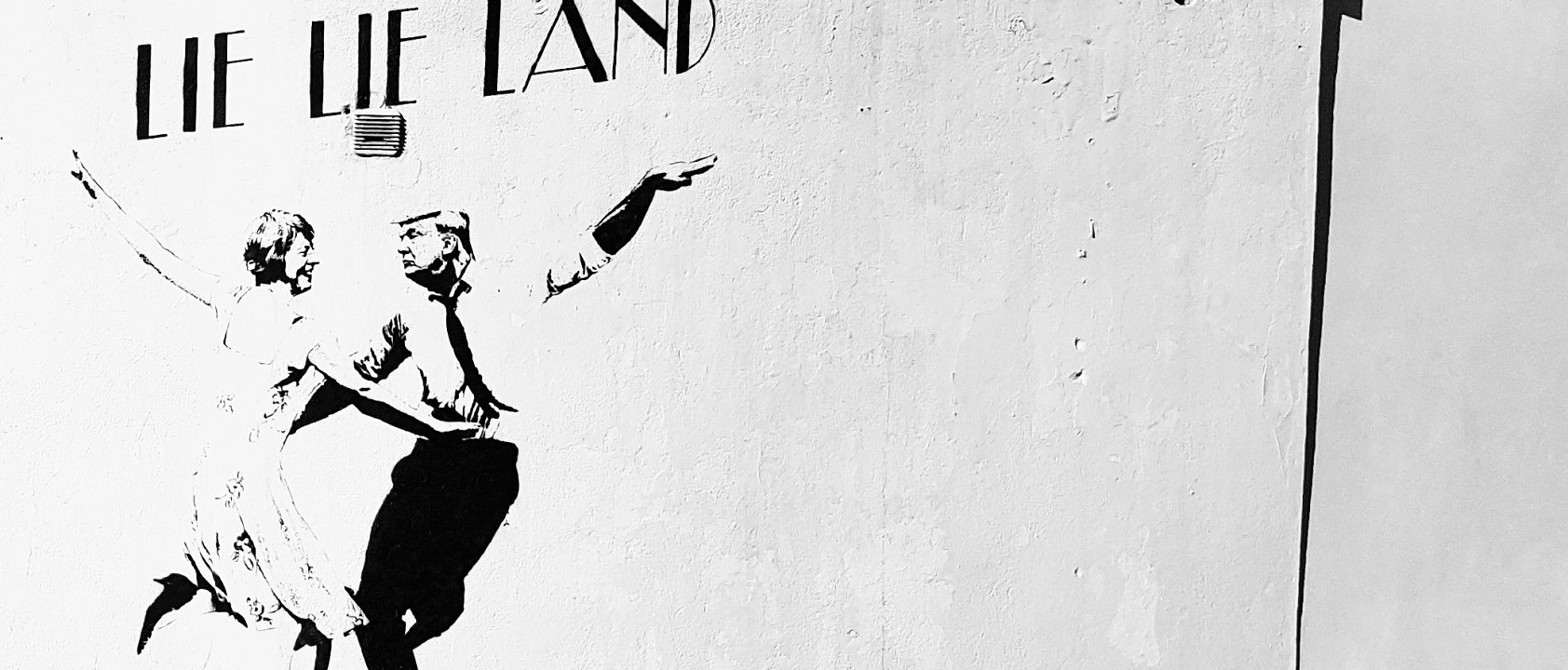Fake News

Share this article
Inflation: Fact or Fiction?
“In a time of deceit, telling the truth is a revolutionary act” ― George Orwell
Disseminated at a hyperbolic rate through social media’s ‘telescreens’, the ‘Ministry of Truth’ distributes ‘Newspeak’. It’s not George Orwell’s 1984. It's now.
Today, this type of truth has no intrinsic value, but it is shaping our world. Audiences no longer trust (or bother to check) the provenance of ‘facts’.
The illusion of truth is so much easier on the mind, according to Daniel Kahneman, author of Thinking, Fast and Slow, explaining why people voted for Trump or Brexit even if the ‘lies’ were obvious.
Instead, ‘alternative facts’ has entered popular vernacular and post-truth became the Oxford Dictionaries’ international word of 2016. Ordinarily, the US and UK editorial teams have different contenders for word of the year.
But from the moment that Brexit became reality and Trump was elected President of the United States both sides of the Pond agreed on the populist power of post truth.
The term used to mean ‘after the truth was known’. This is now redundant. Post truth is an adjective defined as ‘relating to or denoting circumstances in which objective facts are less influential in shaping public opinion than appeals to emotion and personal belief’.
The quality of being felt to be true is now winning hearts and minds. Even if not necessarily true, ‘truthiness’, a term coined by American comedian Stephen Colbert in 2005, is how elections are won.
So, if post-truth is now truthiness, have we entered the realm of lies? PolitiFact, a fact checking website, seems to think so. Fake news was the winner of its Lie of the Year in 2016. Yet some publishers, such as Time Inc., are unwilling to use the word lie unless they can prove the speaker’s intent.
Fake news, however, is not a new thing. After William Jennings Bryan lost the US presidential election to William McKinley in 1896, he started a newspaper to counter an ‘epidemic of fake news’. Today, Bryan would have just tweeted instead.
In 2016, fake news became a currency. It was the protagonist of ‘click bait’ fiction on fake news sites¹ built by people to make money and manipulate electoral outcomes (even if Google and Facebook eventually tried to stem this).
Lying has mutated. By relying on the widespread use of social media networks for news consumption—62% of US adults get news on social media—not only does the ‘lie’ go viral but it reaches hyper-connected super-hubs² of like-minded believers.
When Yochai Benkler wrote The Wealth of Networks in 2006, he could not have foreseen the power of algorithm-driven homophilous-sorting. In a similar fashion to Microsoft’s Tay, the power of like has taken a sinister turn.
In The Square and the Tower: The Rise and Fall and Rise of Networks, due out later this year, Niall Ferguson suggests that the global network is perilously unstable.
Politicians on both sides of the Pond have been caught spinning obvious yarns—cost of EU membership and the NHS and the size of Trump’s inauguration crowd³—but they did not seem to care.
So, why should we? As investors, our role is to discern the key truths that will determine the future prices of assets. As far back as 18 months ago, our view was that a macro-economic regime change was coming with respect to government bond yields after years of continuous deflation.
The view expressed in advance of Brexit was that populism and populist leaders had moved from a late-night TV show joke to political reality, convincing us that rising rates were about to become the new way of life.
But, maybe there's a deeper and more obvious truth. Writing in the May 2008 Harper’s Magazine, Kevin Phillips reported that changes to the Consumer Price Index beginning in the 1960s have increasingly distorted official statistics.
This creates “a false sense of economic achievement and rectitude, allowing us to maintain artificially low interest rates, massive government borrowing, and a dangerous reliance on mortgage and financial debt even as real economic growth has been slower than claimed.”
If this ‘fact’ still holds true, then the real ‘fake news’ in today’s financial markets is that the CPI calculation methods employed by Western governments has systematically under-stated inflation.
In the mid ‘90s, the consumer household baskets used to calculate inflation were adjusted to take account of the effect of the continuing decline of equivalent technology (screens of all types - pc, tablet, TV).
The economic corollary of Moore's Law. Now, even Wired thinks that Moore's Law is on the wane and MIT’s Technology Review has pronounced it dead. Whose household expenditure on gadgets has declined anyway? The real cost of everything from food staples to education and healthcare is rising.
Inflation. It's not only coming, it's already here. Right in front of us. To quote Mr. Trump (misquoting Thomas Jefferson) "don't believe the newspapers".
Photo: © Niki Natarajan 2017
Artist: Bambi
¹ The truth (sort of) about fake news (25.2.2017), The Times
² The lying, hating hi‑tech webs of Zuck and Trump are the new superpowers (19.2.2017), The Sunday Times
³ Truth, lies and the Trump administration (23.1.2017), Financial Times
Article for information only. All content is created and published by CdR Capital SA. The views and opinions expressed in this article are those of the author(s). Information on this website is only directed at professional, institutional or qualified investors and is not suitable for retail investors. None of the material contained on this website is intended to constitute an offer to sell, or an invitation or solicitation of an offer to buy any product or service. Nothing in this website, or article, should be construed as investment, tax, legal or other advice.
Related articles
Democracy
The UK’s vote to exit the European Union and Donald Trump’s victory were signals of a worsening ‘democratic recession’. Today, only 4.5% of the world’s citizens live in fully functioning democracies, down from 8.9% in 2015. What are democracy’s flaws?

Populism Paradox
It doesn’t matter whether or not Trump wins on 8 November because the populism genie is out of the bottle. It is now clear that peak globalisation lies behind us.

No Entry
The failure of the American dream is a resentment that has been building up over decades culminating in the ‘unlikely’ rise of Donald Trump, whose rhetoric mirrors and exploits the economic anxiety, demographic resentment and fears for border security.



